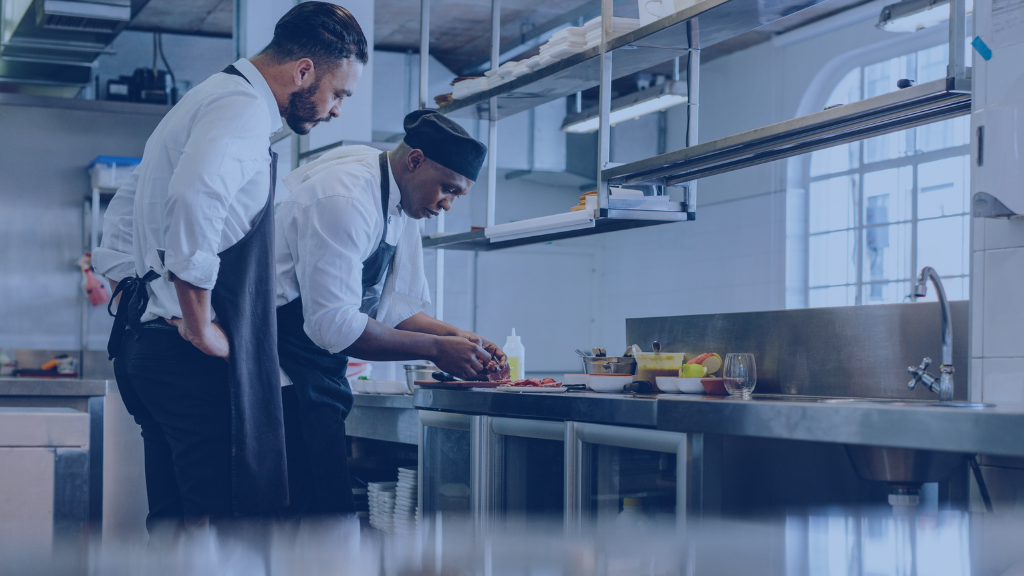
Whether you’re working in a bustling restaurant kitchen or a quaint café, the health of your customers and the reputation of your establishment hinge on your ability to maintain the highest standards of food safety. Here are some essential tactics that every hospitality worker should take into account to ensure a safe dining experience for all.
1. Proper Hand Hygiene
Clean hands are the first line of defense against foodborne illnesses. Always wash your hands with soap and warm water for at least 20 seconds before handling food, after touching raw ingredients, after using the restroom, and after any activity that might contaminate your hands. Hand sanitizers can be used as a supplement, but they should never replace handwashing.
2. Safe Food Storage
Storing food at the correct temperature is crucial to prevent the growth of harmful bacteria. Keep perishable items like meat, dairy, and eggs refrigerated at 40°F (4°C) or below. For frozen items, ensure the temperature is 0°F (-18°C) or lower. Additionally, store raw meats on the bottom shelves to prevent juices from contaminating other foods.
3. Avoid Cross-Contamination
Cross-contamination is a major cause of foodborne illnesses. Use separate cutting boards and utensils for raw meats and ready-to-eat foods like vegetables and bread. After preparing raw ingredients, thoroughly clean all surfaces, utensils, and your hands before moving on to the next task. This simple step can significantly reduce the risk of spreading harmful bacteria.
4. Cook Foods to the Right Temperature
Cooking food to the proper internal temperature kills harmful bacteria that could lead to foodborne illness. Use a food thermometer to check that meats are cooked to a safe temperature. For example, poultry should reach an internal temperature of 165°F (74°C), ground meats like beef or pork should reach 160°F (71°C), and fish should be cooked to 145°F (63°C).
5. Proper Cooling Techniques
Improper cooling of hot foods is a common food safety violation. To cool foods quickly and safely, divide large batches into smaller portions, use shallow containers, and place them in the refrigerator. Stirring hot liquids periodically as they cool can also help prevent bacteria growth. Remember, food should be cooled from 140°F (60°C) to 70°F (21°C) within two hours, and then to 40°F (4°C) or lower within the next four hours.
6. Stay Home When You’re Sick
It’s tempting to push through a shift when you’re feeling under the weather, but working while sick can put your coworkers and customers at risk. If you have symptoms of illness, especially vomiting, diarrhea, or a fever, it’s important to stay home and recover fully before returning to work.
7. Keep Workspaces Clean
Maintaining a clean workspace is essential for food safety. Regularly sanitize countertops, cutting boards, and utensils. Keep an eye on trash bins, making sure they are emptied regularly and lined with fresh bags to prevent overflow. Floors should be swept and mopped daily to avoid contamination from spills and debris.
8. Be Aware of Allergens
Food allergies can have serious, even life-threatening consequences. Ensure that allergenic ingredients such as nuts, shellfish, and dairy are clearly labeled and stored separately from other foods. When preparing meals, take care to avoid cross-contact with allergens by using clean utensils, gloves, and equipment.
Conclusion
Food safety is a shared responsibility, and every team member plays a crucial role in maintaining a safe and healthy environment. By following these essential food safety tactics, workers can help prevent foodborne illnesses and ensure a positive dining experience for every customer. Remember, a commitment to food safety is a commitment to your customers’ well-being and your establishment’s reputation.
ServSafe Benefits member have access to food safety resources.
-A Learning Library containing video lessons on proper hygiene, cleaning, sanitizing, and more.
-Enjoy 20% off the ServSafe Food Handler training program.
-Feeling under the weather? Connect with a doctor in minutes using Teladoc Health at $0/copay.
ServSafe Benefits is a hospitality hub built for industry workers.
More Articles for You

Boosting Your Immune System at Work
Maintaining a strong and resilient immune system is crucial, especially in a foodservice setting where exposure to various germs and pathogens is a daily occurrence. Your immune system is your body’s natural defense mechanism, and supporting it is essential for staying healthy and productive. Here, we’ll explore some practical methods for boosting your immune system at work and decrease susceptibility to illnesses.

Minimizing Waste, Maximizing Impact: 4 Ways to Reduce Food Waste in Restaurant Operations
When it comes to managing a restaurant, the quest for efficiency and profitability often collides with the challenge of food waste. Every year, tons of food is wasted in restaurant operations globally, leading to significant economic losses and environmental harm. However, with careful planning and strategic implementation, restaurants can minimize waste while simultaneously improving their bottom line.
